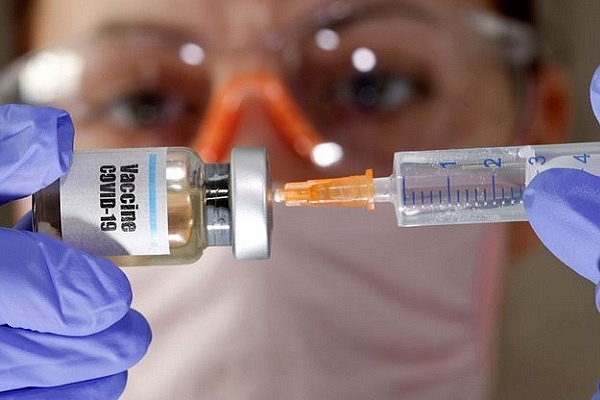Science
All You Need To Know About Heat Tolerant Covid-19 Vaccine From Bengaluru's IISc
- As per animal testing results, the IISc-incubated biotech start-up Mynvax has successfully developed a Covid-19 vaccine which is stable under high-temperature environments and was found to be effective against all current SARS-CoV-2 variants of concern.

Covid-19 vaccine - representative image (Twitter)
India's fight against Covid-19 might get a large boost as the Indian Institute of Science (IISc) in Bengaluru has successfully developed a Covid-19 vaccine that is effective against all current SARS-CoV-2 variants of concern, as per animal testing results. What makes it more interesting is the fact that the vaccine was created to be effective in high-temperature environments.
The vaccine formulations developed by IISc-incubated biotech start-up Mynvax elicited a significant immunological response in mice, according to the study, which was published in the ACS Infectious Diseases journal on 15 July.
According to the study researchers, which also include experts from Australia's Commonwealth Scientific and Industrial Research Organisation (CSIRO), the formulation also protected hamsters from the novel virus and was stable at 37 C (Celsius) for up to a month, as well as at 100 C for about 90 minutes. Most of the currently available and popular Covid-19 vaccines need refrigeration to remain effective—for example, Pfizer-BioNTech jab needs ultra-cold storage (-70 C), while the Oxford-AstraZeneca vaccine, which is being produced in India under the brand name Covishield, needs to be kept somewhere with 2 to 8 C.
In the case of IISc's vaccine, the researchers tested the efficacy of vaccinated mice sera or blood samples against key coronavirus variants, including the Delta, which is currently spreading around the world.
As reported by the Business Standard, S S Vasan, CSIRO's Covid-19 project leader, said that the sera from Mynvax-vaccinated mice show a significant response to all live virus variants. Vasan, who is the co-author of the research—which also included experts from the University of York in the United Kingdom, CSIR-Institute of Genomics and Integrative Biology in New Delhi, Translational Health Science and Technology Institute in Faridabad and Chandigarh's CSIR-Institute of Microbial Technology—noted that "our data shows that all formulations of Mynvax tested result in antibodies capable of consistent and effective neutralisation of the Alpha, Beta, Gamma and Delta SARS-CoV-2 variants of concern".
The receptor-binding domain (RBD) of the viral spike protein is used in the IISc-Mynvax vaccine that allows the virus to connect with the host cell and infect it. The preventative varies from other vaccines as it only employs a portion of the RBD—a 200-amino-acid string—rather than the complete spike protein of the virus. However, the assessment made by CSIRO of the various Mynvax formulations will aid in the selection of the best candidate for human clinical trials in India that would take place later this year.
According to CSIRO's Health and Biosecurity Director, Rob Grenfell, for isolated or resource-limited places which have extremely hot climates and lack reliable cold storage supply chains, such as regional populations in Australia's outback, as well as the Indo-Pacific region, "a thermostable or 'warm vaccine' is critical".
Support Swarajya's 50 Ground Reports Project & Sponsor A Story
Every general election Swarajya does a 50 ground reports project.
Aimed only at serious readers and those who appreciate the nuances of political undercurrents, the project provides a sense of India's electoral landscape. As you know, these reports are produced after considerable investment of travel, time and effort on the ground.
This time too we've kicked off the project in style and have covered over 30 constituencies already. If you're someone who appreciates such work and have enjoyed our coverage please consider sponsoring a ground report for just Rs 2999 to Rs 19,999 - it goes a long way in helping us produce more quality reportage.
You can also back this project by becoming a subscriber for as little as Rs 999 - so do click on this links and choose a plan that suits you and back us.
Click below to contribute.
Latest